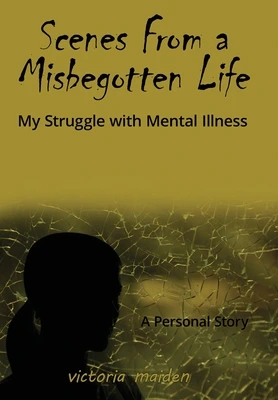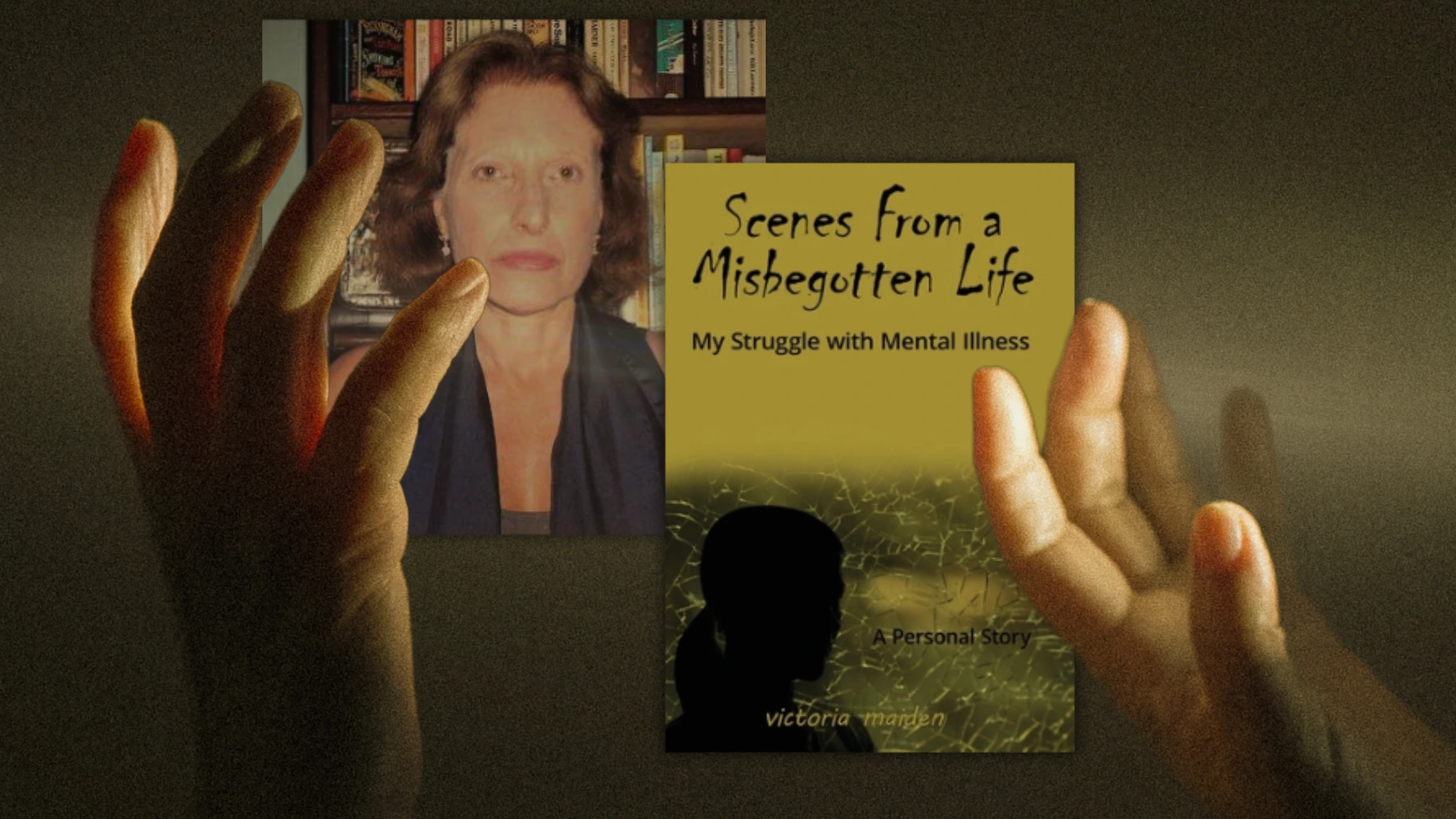Scenes From a Misbegotten Life by Victoria Maiden
“If even one person recognizes themself in my story and feels less alone in the world, less invisible — that, I think, will give me a satisfying sense of closure.”
In the riveting Scenes From a Misbegotten Life, Victoria Maiden chronicles her messy and lopsided life, from preadolescence to senior citizen, in a captivating memoir that often reads like a novel. But this book is far from fiction. Rather, it is a ruthlessly candid case history of a woman whose life has been marred by mental illness in various and surprising ways, not only as a sufferer herself but as witness to the struggles of similarly afflicted family members and friends.
In this recent interview, the author digs deeper into her work and her life.
Q: Scenes From a Misbegotten Life touches on the idea of life as a “badly written play.” How do you see this metaphor playing out throughout your memoir? Did your perspective on life evolve as you chronicled these “scenes?”
A: A “badly written play” is a play that makes you wonder, as you sit through it, why you wasted your money. Stupid plot, lousy acting, stilted dialogue, etc. The metaphor plays out in the memoir because every sad episode, every absurd incident, every ridiculous situation the author finds herself in is another reminder that this “story” is probably not worth sticking around until the bitter end. And as these sorry “scenes” accumulate over the years, and the author’s perspective on life becomes warped and darkened, she is like the playgoer who is ready to walk out of the theater. At length, the author considers taking her own life rather than waiting, exasperated, for the final curtain.
Q: Mental illness is a recurring theme in your book, both in your personal struggles and those of your family and friends. How has writing about these experiences shaped your understanding of mental health, and what do you hope readers take away from this candid portrayal?
A: I have realized that mental health is an extraordinarily complex issue, full of nuance. The characters in the book, author included, suffer from various aspects of mental illness, nervous disorders, psycho-emotional maladies. Yet all of them can exhibit traits, talents, facets of personality that appear perfectly “normal,” even charming or impressive. Perhaps we all harbor within ourselves little streaks of “mental illness,” for lack of a more precise term. I hope readers will recognize that this condition affects us all as humans and that the stigma that is often attached to it is damaging and unhelpful. Because we are talking about our families, friends and neighbors. It is time to drop the stigma and the shame.
Q: You take readers on a journey from the streets of Greenwich Village to the Greek Isles and Hollywood Boulevard. How did these different settings and stages of your life reflect your emotional and mental landscape at the time?
A: A key feature of depression is a kind of perpetual restlessness. In their struggle to find happiness, the depressive often imagines that all that is needed is something “new.” A new job, a new boyfriend, a new place to live. My travels were often motivated by the delusion that I could somehow re-invent myself in a different setting, could be “reborn” in a sense, in a place where I had no history and nobody knew me. It’s the kind of fantasy that sufferers of mental illness often engage in, because raw reality is too painful to bear. The emotional landscape is one of escapism, but this compulsive moving about can give temporary relief from the worst ravages of depression.
Q: Your memoir blends humor and tragedy. How did you strike the balance between the dark realities of mental illness and the lighter, often absurd moments of your life?
A: There can be a certain relief in suddenly throwing up your hands and realizing that the whole world is crazy and it’s no one’s fault. It lets you off the hook. You can look at the train wreck your life has become and just laugh at it. Embracing the humor is a coping mechanism that can numb you to the pain. Often it takes a gargantuan effort to balance the humor with the tragedy. But when you zoom out and look at life as a whole, you realize that this paradox is baked in. When I felt myself slipping deeply into the quicksand of black depression this perspective was something I could grab hold of to pull myself out.
Q: The idea of sticking around until the final curtain call in the face of a messy, unpredictable life is central to your memoir. Did writing this book give you any sense of closure or catharsis?
A: Yes, I must say that pouring all this stuff out on paper was therapeutic for me — like vomiting after having too much to drink. Getting it all out of your system is a tremendous relief. I never thought I would want to “tell my story” to anyone other than close friends and family. Mainly because I was ashamed of it. But after losing my brother to mental illness I felt that his story, mine, and those of countless others who have grappled with this affliction needed to be told. If even one person recognizes themself in my story and feels less alone in the world, less invisible, that, I think, will give me a satisfying sense of closure.
Q: You mention being the first in your family to attend college, which was a significant achievement in the 1950s. How did your early aspirations in publishing, law, or academia contrast with the life you ended up living, and how did these dreams shape who you are today?
A: The life I wound up living was a far cry from the aspirations I had when I was in college. From not being able to pass a typing test to having to decline going to law school because it would have meant living with my mother for another three years, everything seemed to go wrong just as I was trying to plan a future for myself. My illness made it impossible for me to adequately deal with the normal challenges and setbacks of young adulthood. Had effective treatments for depression been available at the time, things might have been different. Today I can still see myself as a book editor, college professor or lawyer. But unfortunately, Fate had other plans.
RELATED POSTS:
Memoir Seeks to Destigmatize and Explore Nuance of Mental Illness
 About Victoria Maiden:
About Victoria Maiden:
Victoria Maiden never intended to write a book. She has never entertained fantasies of writing the great American novel, a Hollywood screenplay, or anything else. She is merely an individual whose life has been tainted by an often-invisible plague that affects millions: mental illness. For decades, she bore the burden as best she could, sought help when and where it was available, and tried to hide her illness from others. She simply lived a life of what Henry David Thoreau called “quiet desperation.” But what if she could paint a vivid, brutally honest picture of what it is actually like to live with mental illness on a day-to-day basis? Maybe somebody who has a loved one who suffers from the same affliction would be curious enough to take a peek. The result is Scenes from A Misbegotten Life — raw, unfiltered, just the way it happened.

Publish Date: 8/21/2024
Genre: Memoir
Author: Victoria Maiden
Page Count: 462 pages
Publisher: Gatekeeper Press
ISBN: 9781662943485

